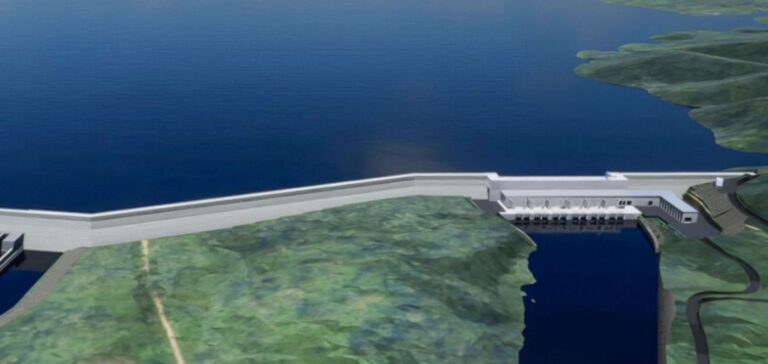The Hydro Power Company (KHPC) has launched the initial selection process for companies interested in participating in the construction of the 500 MW Kikot hydroelectric dam. This project, planned in the Central region of Cameroon, will become the country’s largest energy infrastructure, surpassing the Nachtigal hydroelectric plant (420 MW).
A Structured Call for Applications
Interested companies can apply for several distinct lots. These lots include civil engineering and electromechanical works, as well as the installation of metal structures and hydromechanical equipment. Another part of the project concerns the construction of the energy evacuation line and substation, along with the connections between the substation and the plant.
Only the selected candidates from this phase will be invited to submit bids during the final tender, which is scheduled to launch between August and September 2025. KHPC clarified that this selection phase, open since January 27, 2025, is accessible to both national and international companies, as long as they are not under sanctions from the Cameroonian government, the World Bank, or the International Finance Corporation (IFC).
A Large-Scale Infrastructure
The project will feature a 1,200-meter-long dam and a plant equipped with six Kaplan turbines, each with a capacity of 83.3 MW. The planned height of the water fall is around 35 meters. This project is currently being carried out by KHPC, an entity equally owned by Électricité de France (EDF) and the Cameroonian government.
According to EDF’s estimates, the total project cost is expected to exceed one billion euros, or more than 650 billion CFA francs. The financing will be provided by the World Bank via the IFC, as well as other international financial institutions. Construction is scheduled to begin in 2025, with commissioning expected by 2030.
A Highly Monitored Project
The Kikot dam is part of Cameroon’s energy strategy to increase its production capacity and stabilize the electricity supply. Its implementation will be closely watched by investors and stakeholders in the sector, given the economic and financial stakes it represents.






















